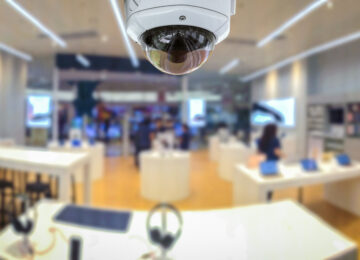Retail employee theft: How to spot it and what to do

Shrinkage is a real scourge for retailers. While it is often due to shoplifting, internal theft accounts for a significant proportion of this loss of earnings. Do you suspect one of your employees or have you caught them in the act? What should you do about it? What are your rights and options? Here are some answers.
Common causes of internal theft in retail
There are many reasons why retail employee theft occurs. The most common are as follows:
- For their own use: stealing food, make-up and all kinds of equipment;
- Resale: theft of electronic equipment, wine, designer clothes, raw materials, etc., which often end up on online platforms for buying and reselling between individuals;
- Psychological problems. In particular, the thief does not steal for himself or herself or for resale, but acts compulsively;
- A desire to harm the company or a colleague. In some cases, and sometimes as a result of a dispute, an employee may be led to steal, for example in order to put the head of the company or a colleague at odds with the customer waiting for the product, to disorganise departments or to obtain compromising information in the case of data theft.
Thefts can therefore take many forms: money in the till, objects, food, but also intangible assets such as passwords or information (company accounts, personal data, etc.).
They may involve the company's assets themselves, but they may also affect the personal assets of a customer, yourself or even another employee. In the latter case, you are liable as the employer.
How to prevent employee theft with cameras and policies
Before discussing the theft itself, you may find it useful to know what preventive measures exist. As the saying goes, prevention is better than cure.
The best-known and most effective method is to install surveillance cameras. Not only will this deter thieves, it will also make it easier to spot thefts and provide you with evidence.
However, there are a number of things you need to do first, including
- Obtaining authorisation from the local authorities to install cameras;
- Keeping employees informed of the installation.
You can also opt for video surveillance for supermarkets, for example, equipped with software that recognises suspicious gestures. This is the case for the one developed by Veesion. It will alert you as soon as an employee or customer indiscriminately puts an item in their pocket or bag, looks around insistently, opens a product, and so on.
There are also other ways of preventing employee theft: smart tills equipped with specific control software, RFID tags that enable products to be tracked, storing goods in a protected area, checking employees' work by yourself or their peers or keeping a very precise register.
Are you allowed to install a hidden camera?
In the context of retail employee theft, the use of employee surveillance tools is subject to strict controls. They can violate privacy. Cameras may only be installed to film entrances and exits, emergency exits, traffic lanes or the cash desk, but not the cashier. It is also forbidden to film workstations, break areas, toilets or union premises. Evidence obtained by unlawful means will not be admissible.
On the other hand, as an employer, you have other possibilities for verifying certain elements, in particular checking business documents (and not personal ones) in the offices, theuse of the Internet and computer equipment, business emails and text messages and the employee's geolocation. You may also search employees if they have given their consent, if they have been informed of their right to refuse and to request the presence of others, and if they respect the dignity of the individual.
What should you do if your employee's theft is proven?
First and foremost, you must prove that the employee has indeed committed a theft, for example by means of surveillance cameras within the framework of the law (as we have just explained), a bugging system or professional computer files. You do not, however, have the right to have your employee followed or to search his personal belongings or data.
Once you have the evidence in your possession, you may choose to lay off the employee. This procedure removes the employee from the company for a certain period if they have committed a serious offence, pending a final decision. You have two months in which to do this, from the time you become aware of the facts. This is followed by an interview with the employee so that he can explain what he is accused of and justify himself. This may or may not result in dismissal for gross misconduct.
If the financial loss is significant or if the case is very serious, you can lodge a complaint. In this case, you will need to compile a solid file of evidence (videos, witness statements, documents, etc.), preferably with the help of a lawyer who is an expert in the field. You then lodge a complaint with the police, who will take charge of the case and conduct an investigation.
What does the thief risk?
If you do not lodge a complaint, you choose the disciplinary penalty yourself. This can range from a warning or reprimand to dismissal, lay-off, transfer or demotion. This decision must, of course, follow all the compulsory procedures laid down by law and/or by the collective agreement.
In conclusion, combating theft in all its forms is essential to the smooth running of your business. The damage can amount to several hundred or even thousands of euros, depending on your business and the category of products stolen. But it's always tricky to react with a clear head when the theft is committed by one of your trusted employees. With this overview of the causes of theft, preventive measures such as Veesion's AI-based video surveillance software, the actions you are entitled to take and the legal limits (cameras, searches, business documents and calls, etc.), as well as the possible penalties, you have all the information you need to take matters in hand and act effectively to ensure the survival of your business.
The most popular
Related news
Discover what Veesion can do for you. Do you have one or more stores?
Our team will contact you within 48 hours





